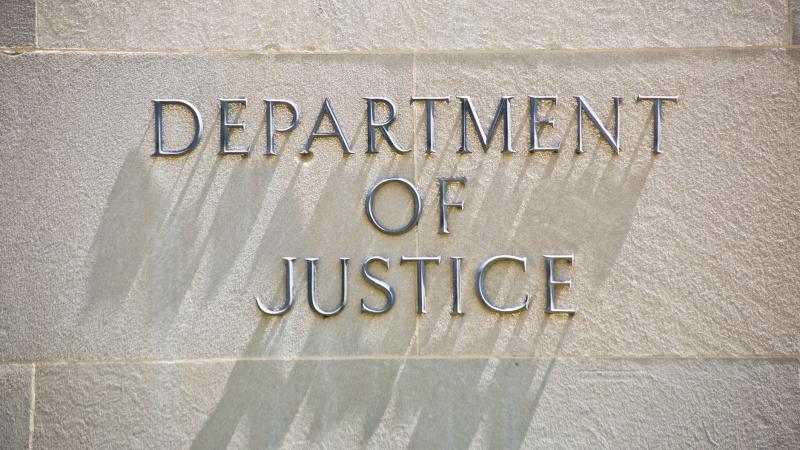Yes America, Democrats really do want tax dollars for illegal immigrants
The Democrats' own proposal seeks to repeal the section of the One Big Beautiful Bill Act that ends healthcare for aliens.
At midnight Tuesday, the government shut down. Prior to the deadline, Republicans passed their budget proposal out of the House of Representatives, but Senate Democrats, along with Republican Sen. Rand Paul of Kentucky, shot it down, 55-45.
While Republicans have branded this the "Schumer Shutdown," blame-slinging began months ago when negotiations commenced to avert the budget showdown.
The clarity of Democrats' desire to give illegal immigrants free healthcare is abundant, as evidenced by every single Democratic nominee eagerly raising their hand in support of the policy at the June 2019 NBC presidential debate. In practice, it has become more of a shell game.
How the shell game works: Channeling federal dollars through states
Some states, often Democratic-led, are stretching the boundaries of federal Medicaid rules to extend coverage to certain immigrants who aren't fully "qualified" under the law, effectively routing federal dollars toward groups legally considered ineligible.
The New York Times issued their own "fact check," which vaguely admitted that "Separately, the federal government does reimburse hospitals for providing emergency care to low-income unauthorized immigrants who are otherwise ineligible for Medicaid."
The funds in question are designated for Medicaid, which is supposed to only be for legally present immigrants, like refugees and green card holders. Republicans point out that emergency services, accessible to all including illegal immigrants, inflate these costs, and argue that the asylum-seekers who entered during Biden's term are not in the United States lawfully.
Additionally, Republicans are concerned that the bill allocates $8 billion for migrant hotels. The nuance is that the funds ostensibly support broader federal law enforcement, including ICE facilities that detain both immigrants and U.S. citizens. However, with a specifically allocated amount of money, this inevitably diverts resources toward immigration-related expenses and away from lawful, legal residents and citizens.
For clarification, Sen. Joey Arrington, R-Texas, who serves as the chairman of the Senate Budget committee, sent a list of queries to the Congressional Budget Office (CBO). The agency's response was registered on their government website and clarified that from 2017 to 2023, federal and state governments spent a total of $27 billion on emergency Medicaid services for people who were ineligible for full Medicaid coverage because of their immigration status. The federal portion of that bill is a little over $18 billion.
The letter further clarifies that under the Personal Responsibility and Work Opportunity Reconciliation Act of 1996 (Public Law 104-193), "eligibility for many federal benefit programs—including Medicaid—has generally been limited to “qualified aliens,” as defined by that law. That group includes lawful permanent residents (also known as green-card holders), asylees, refugees, and people who are paroled into the United States for one year or more. Those people generally are eligible to participate in comprehensive Medicaid after a five-year waiting period, which may be waived for people in some groups, such as asylees and refugees."
In Democrats' own words
With Democrats denying these claims, a number of lawmakers have clarified the situation on their social media accounts. Rep. Mark Alford, R-Mo., posted pages from Democrats' own proposal with a highlighted section titled, "Sec. 71109. Alien Medicaid eligibility." He also showed the portion of the One Big Beautiful Bill Act that ends health care for aliens, which Democrats have vowed to repeal in their proposal.
Rep. Tom McClintock, R-Calif., broke it down to dollars and cents to Just The News: "Senate Democrats are blocking that bill. What are they demanding? One and a half trillion dollars in new spending. That's about $12,000 for every household."
Meanwhile, a coalition of 20 Democratic-led states plus the District of Columbia are suing the Trump administration's DOJ over a new policy barring Byrne Justice Assistance Grants from funding legal services for illegal aliens (effective Oct. 31, with retroactive application). Led by California's Attorney General, Rob Bonta (though filed in Rhode Island's federal court), the suit argues the rule violates, among other things, the Constitution's Spending Clause, and that the Trump administration's new rule blocking federal crime-fighting grants from covering legal help for illegal aliens is unconstitutional.
However, the Trump administration's response has been that they have a mandate to prevent taxpayer funding for illegal immigrant services, whether medical or legal, enforcing immigration law, and redirecting resources to United States citizens and lawful immigrants.














